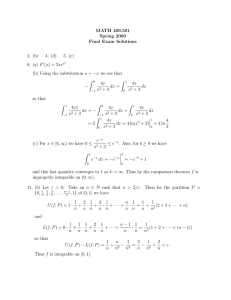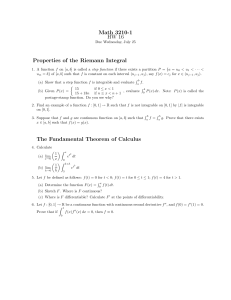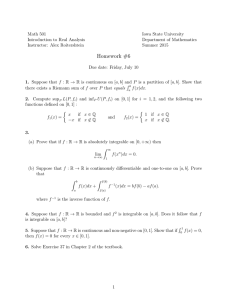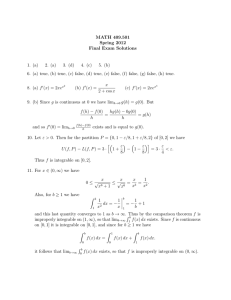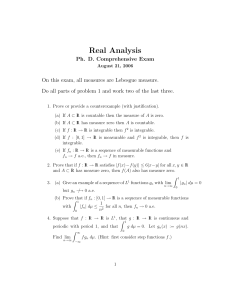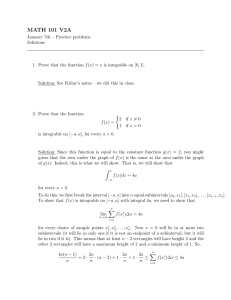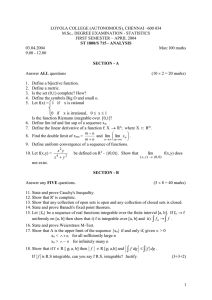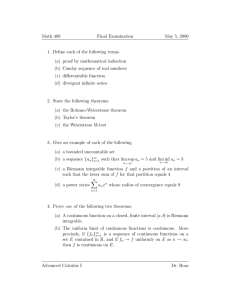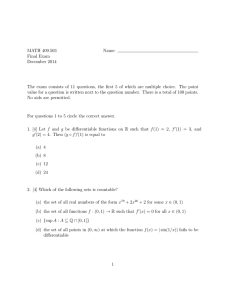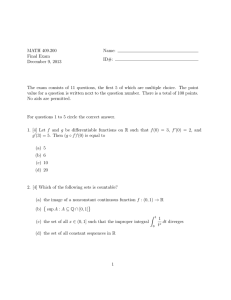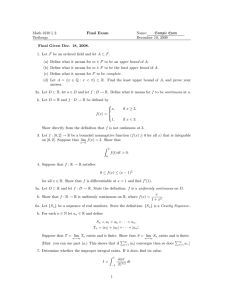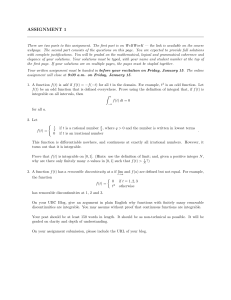MATH 409.501 Name: Final Exam ID#:
advertisement
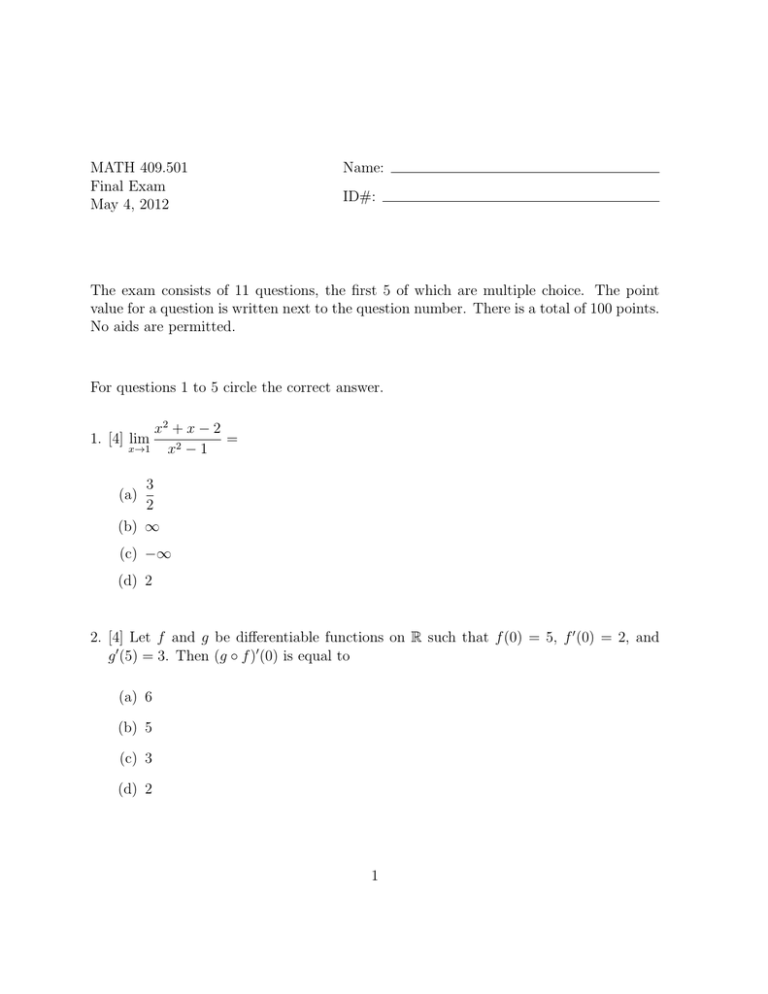
MATH 409.501
Final Exam
May 4, 2012
Name:
ID#:
The exam consists of 11 questions, the first 5 of which are multiple choice. The point
value for a question is written next to the question number. There is a total of 100 points.
No aids are permitted.
For questions 1 to 5 circle the correct answer.
x2 + x − 2
=
x→1
x2 − 1
1. [4] lim
3
2
(b) ∞
(a)
(c) −∞
(d) 2
2. [4] Let f and g be differentiable functions on R such that f (0) = 5, f 0 (0) = 2, and
g 0 (5) = 3. Then (g ◦ f )0 (0) is equal to
(a) 6
(b) 5
(c) 3
(d) 2
1
3. [4] limx→0+ (1 + 2x)1/x =
(a) 0
(b) 1
(c) 2
(d) e2
cos x
=
x→∞ x2
4. [4] lim
(a) 2
(b) 1
(c) 0
(d) ∞
5. [4] Which of the following functions is not uniformly continuous on R?
(a) f (x) =
1
1 + x2
(b) f (x) = 1 + x2
(c) f (x) = sin x
(d) f (x) = sin2 x
2
6. [24] In each of the following 8 cases, indicate whether the given statement is true or
false. No justification is necessary.
(a) The image of a continuous function f : R → R is either finite or uncountable.
∞
(b) If {xn }∞
n=1 is a Cauchy sequence then {|xn |}n=1 is a Cauchy sequence.
(c) If f is a bounded function on [0, 1] then there is an a ∈ [0, 1] such that f (a) =
supx∈[0,1] f (x).
(d) The function f (x) = x sin x is integrable on [0, 5].
3
(e) For every function f : R → R, the limit of f (x) as x → 0 exists if and only if
limn→∞ f (xn ) exists for all sequences {xn }∞
n=1 which converge to 0.
∞
(f) If {xn }∞
n=1 is a sequence that converges and {yn }n=1 is a sequence that does not
converge, then the sequence {xn yn }∞
n=1 does not converge.
(g) If f : (0, 1) → R is improperly integrable on (0, 1) then f 2 is improperly integrable
on (0, 1).
(h) Every nonempty subset of [0, 1] has a supremum.
4
7. [12] (a) State the completeness axiom for the real numbers.
(b) State the Mean Value Theorem.
(c) State the Intermediate Value Theorem.
5
8. [12] Compute f 0 for each of the following functions f : R → R.
(a) f (x) = ex
2
x
Z
(b) f (x) =
1
Z
(c) f (x) =
x2
t
dt
2 + cos t
2
et dt
1
6
9. [12] (a) State what it means for a function f : R → R to be differentiable at a point
a ∈ R.
(b) Let f be a function on R for which there exists a function g such that f (x) = xg(x)
for all x ∈ R and g is continuous at 0. Prove that f 0 (0) exists and determine its value.
7
10. [10] Define the function f : [0, 2] → R by
0,
3,
f (x) =
1,
0≤x<1
x=1
1 < x ≤ 2.
Prove directly from the definition of integrability that f is integrable on [0, 2].
8
11. [10] Prove that the function f (x) = √
x
is improperly integrable on (0, ∞).
x6 + 1
9
